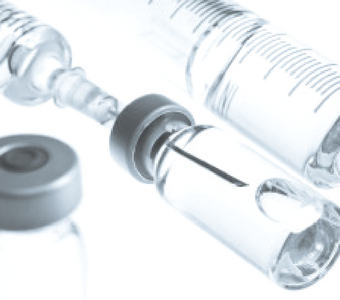Achillion Pharmaceuticals (NASDAQ:ACHN) is up nearly 80% since its summer lows (see our initial article on ACHN here), as the hepatitis C (HCV) space continues to evolve. While Gilead’s (NASDAQ:GILD) nucleotide (“nuke”) treatment candidate GS-7977 continues to advance and looks like the best thing since sliced bread, other treatments in this chemical class have been plagued by toxicity issues, most notably, Bristol-Myers’ (NYSE:BMY) compound, BMS-986094, which caused the big pharma to write off $1.8 billion. What we think is most attractive about Achillion is that its lead therapies are not “nuke” based, but rather improved versions of protease inhibitor compounds, a drug class that has already reached the market. Beyond its protease inhibitor programs, ACHN also is developing potent compounds in the NS5A inhibitor class, for which the company reported data Thursday.
ACHN’s second generation compound in this program is ACH-3102, which has demonstrated favorable safety data in healthy volunteers (Phase Ia,14 patients) and also strong Phase I human proof-of-concept. That proof-of-concept data was released today. ACHN reported that HCV-infected patients treated with just one dose of ACH-3012 had a mean reduction in HCV viral load of 3.74 log10 (range 2.9 to 4.6 log10). For reference, the FDA requires at least a 2.0 log10 reduction in HCV RNA (undetectable levels) over 12 weeks to be considered a response. Based on this impressive data, ACHN will advance ACH-3012 into a Phase IIa trial in patients with the difficult to treat ‘genotype 1b’ form of the HCV virus. While these data are early, and safety must be demonstrated in longer trials, the advancement of this compound and the rest of ACHN’s HCV pipeline suggest that pharma companies looking for a comprehensive platform in this treatment segment can buy an entire program with just this one company acquisition. Notably, Inhibitex, which developed BMS-986094, took its lead compound into Phase II, and BMY paid $2.5 billion for this single early-stage asset. With a full pipeline of HCV compounds that look to be among the best in their classes, and a market valuation of just $725 million, ACHN still appears to be a good deal. Despite the great run-up so far, we believe the stock still has room to run, and that a take-out remains a high probability outcome.



